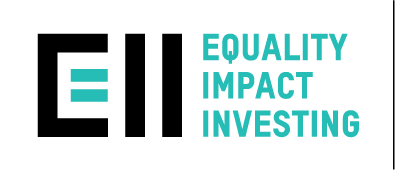
EII RESOURCES FROM THE FIELD
As a collaborative endeavour that seeks to build the field of equality impact investing, EIIP gathers resources that demonstrate or support social impact investing putting equality impact principles and strategies into practice. These resources are made available for the benefit of the entire community, to catalyse and advance knowledge and action for equality impact.
You are welcome to submit resources for the EIIP Knowledge Hub through this form. These can include resources developed through by your own organization or any other resources that you would like to see featured and made available to the EII community.
DO YOU WANT TO SUBMIT A RESOURCE?
Resources can be examples of funds, practices, processes, research or data. Formats can include web links, case studies, reports, research articles, policy documents, application forms, communications strategies or assessment criteria.
LSE Case & Oxfam - Data resources for multidimensional inequality
List of data resources that can be looked at in addition to any national or regional sources on inequality.
Department for Digital, Culture, Media & Sport (UKJ) - Equality data (UK)
This series brings together all documents relating to Equality data in the UK.
European Union Agency for Fundamental Rights - Compendium of practices for equality data collection
The Compendium of Practices on Equality Data covers practices on different discrimination grounds and areas of life in which discrimination, inequality and exclusion can occur.
LSE Case & Oxfam - Multi-dimensional Inequality Framework
Developed by Oxfam and LSE’s Centre for the Analysis of Social Exclusion, this framework can be used to understand the drivers of inequality and root causes across seven key aspects of life, referencing goals such as the SDGs.
Equality and Human Rights Commission - Equality and Human Rights Measurement Framework
Used by the UK’s Equality and Human Rights Commission (EHRC; the UK’s statutory equality and human rights body) as a basis for monitoring and reporting on the UK’s adherence to, and progress on, domestic and international equality and international human rights legal standards.
Extend Ventures - Diversity Beyond Gender
This report analyses the extent of the UK funding gap to understand if bias beyond gender exists in the UK venture capital market and what opportunities lie ahead to make access to innovation and entrepreneurship more equitable.
Transform Finance - Grassroots Community Engaged Investment
What would investment in communities look like if those very communities were part of the process?
Greater Manchester Centre for Voluntary Organisations - Connecting BME Entrepreneurs to social investment
The aim of the project – delivered by GMCVO, GM BME network and Flourish CIC and supported by the Connect Fund – was to better understand the barriers facing Greater Manchester (GM) Black and Minority Ethnic (BME) communities to access social investment and what support would be needed to make social enterprise infrastructure more inclusive to BME social enterprise.
Disability Rights UK - Disabled People’s Organisations and Social Investment
Supported by the Connect Fund, Disability Rights UK (DR UK) is working in partnership with Traverse (formerly known as the OPM Group) to conduct a project aimed at helping Disabled People’s Organisations (DPOs) better understand and engage with social investment.
Resource Generation - Transformative Investment Principles
We ask, specifically as young people with access to wealth, how can we mobilize resources as effectively as possible in service to movements?
UNDP SDG Impact - SDG Impact Standards for Private Equality Funds
The SDG Impact Standards are a set of practices that organizations can apply to help build a more sustainable, inclusive and resilient world.
The Young Foundation - the sky’s the limit
Report on what is genders lens investing, how it generates financial return and advances gender equality and what needs to happen to build the field in the UK.
Criterion Institute - Disrupting Fields: Addressing power dynamics in the fields of climate finance and gender lens investing
The framework outlined in this paper is intended to facilitate analysis of power in context and to increase the willingness of field builders (and those who support them) to disrupt systems of power more boldly in order to advance goals of justice and equity.
GenderSmart - GenderSmart Guide to Investing in First-Time Women and Diverse Fund Managers
We believe the private equity and venture capital fields can’t reach their full potential when the participation of women and diverse first-time fund managers is limited.
Refugee Investment Network - Paradigm Shift: How investment can unlock the potential of refugees
The Refugee Investment Network's flagship report offers impact investors, grant-makers, and development finance professionals with the first overview on how to invest in and with forcibly displaced people.
University of Colorado Media Enterprise Design Lab - Exit to Community: A Community Primer
Exit to Community (E2C) is an effort to develop alternatives to the standard model of the startup "exit."
The Democracy Collaborative, Open Society Foundations, Soros Fund Management - Guidelines for Equitable Employee Ownership Transitions
How investors, founders, and employees can share in the value created by broadly held enterprise ownership.
Enclude/Palladium Group - Systems Change: An Emerging Practice in Impact Investing
Impact investors are increasingly engaging in 'systems practice' to better understand the underlying causes to social and environmental problems and to identify high leverage solutions to advance positive systems change.
Pre-distribution Initiative - ESG 2.0: Measuring & Managing Investor Risks Beyond the Enterprise-level
Multi-stakeholder effort includes an invitation and a call to action for institutional investors to address the systemic and systematic risks in how they approach asset class allocation and the misaligned incentives of investment structures.
Calvert Impact Capital - Gender Len Investing: Legal Perspectives
The report explores how investors incorporate gender considerations into the legal documentation and terms of their debt financing, summarizing the results of a survey of 20 investors.
